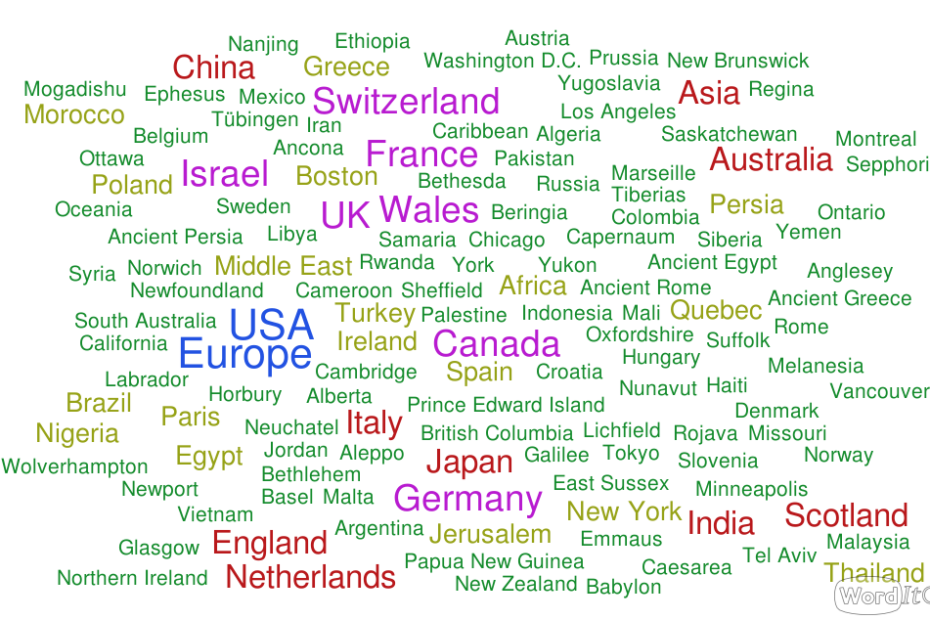I have created a new word cloud1 for National Indexing Day, my third in three years. This year I have focused on one common category of proper noun that is often used as an index entry: geographical place names.
All of the places in this word cloud are from the indexes that I’ve created since National Indexing Day 2022.2 The colour and size of each place name shows how often it appeared in this set of indexes. Europe and the United States of America (USA) have featured most often, but there are many places that appeared in just one index. The places vary by size, location, and historical period.
There are many things to think about when indexing place names – here are four examples:
- A place might have more than one name, perhaps due to historical variations (e.g. Saint Petersburg / Petrograd / Leningrad / Saint Petersburg) or because there are formal and colloquial names (e.g. Kingston-upon-Hull / Hull) or for other reasons such as transliteration.
- A place name might refer to more than one location (e.g. there are more than 30 places called Aberdeen across the globe).
- A place name might begin with a ‘weaker’ word (e.g. Isle of Lewis).
- Small places and the larger places they are part of are often all named in the same book (e.g. a city, within a country, within a region or continent).
An indexer has a range of tools to help readers find the place they are looking for:
- qualifiers to provide additional information
- cross-references from a less common to the most common variant
- inversion of terms so the stronger element is prioritised
- double entry of terms so the same locators are listed under more than one place name in the index
If you are interested in learning more, perhaps you would be interested in training as an indexer or completing a workshop about indexing? The Society of Indexers runs an Indexing Basics online workshop which takes 6-7 hours to complete, and a range of other workshops, some aimed at editors, others offering different aspects of indexing. There is the course of professional training which takes from one to four years to complete. Other organisations also provide workshops and courses.
A list of my recent indexes is available here. Subject areas indexed this year include literary and cultural studies, theology and the social sciences.
1 Word cloud generated in Word It Out.
2 The embedded indexes I created in 2022/23 are not included. The place names are taken from the standard indexes that I created in SKY Index Professional software.
